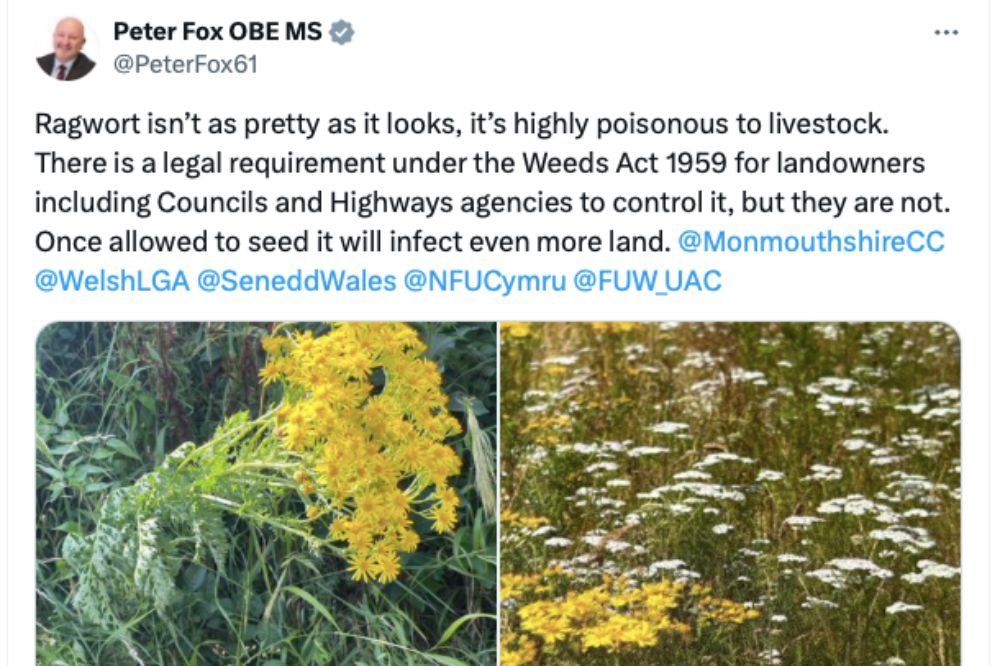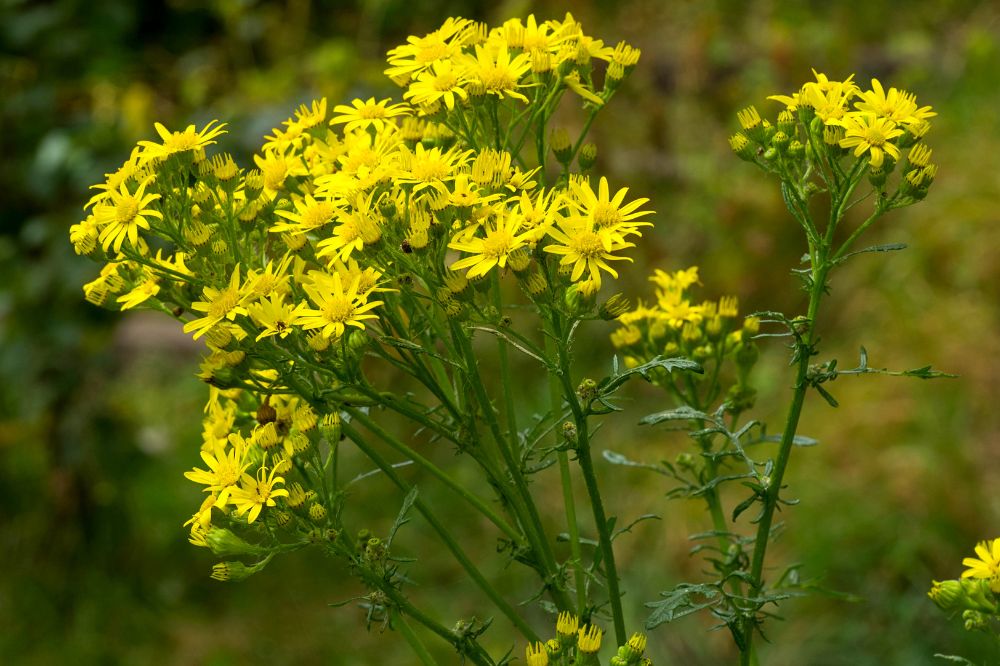Tory MS apologises for incorrect ragwort claims

Emily Price
A Tory MS has apologised for making incorrect claims that landowners and councils have a legal requirement to remove the yellow flowered plant ragwort.
Senedd politician Peter Fox published a post to X on Monday (July 30) which was later flagged with a ‘community note’ for containing “misinformation” about the plant.
Mr Fox wrote: “Ragwort isn’t as pretty as it looks, it’s highly poisonous to livestock. There is a legal requirement under the Weeds Act 1959 for landowners including Councils and Highways agencies to control it, but they are not. Once allowed to seed it will infect even more land.”

‘Ignorant’
The community note beneath the post stated that Mr Fox’s comments were “not true” and included the links to the relevant legislation.
The post sparked outrage from environmental campaigners including Welsh wildlife presenter Iolo Williams who waded into the argument branding Mr Fox “ignorant”.
It’s commonly claimed that the Weeds Act 1959 forces landowners to control ragwort – but this is not the case.
Although the native British plant is included in the legislation, there is currently no automatic legal requirement for landowners or councils to remove it.
Ragwort is generous in its nectar production and has been placed in the top ten of the UK’s nectar producers making it a valuable food source for invertebrates whose numbers are in decline.
The plant is much loved by pollinators like bees, flies, butterflies and the striking black and yellow Cinnabar Moth caterpillar – but grazing animals will avoid eating ragwort whilst it’s alive because of its strong smell and taste.
However, if it is dried and mixed with other food such as hay it becomes poisonous to horses and can cause irreparable liver damage.

Ragwort flowers in the summer and goes to seed much like dandelions with tiny pods that carry on the wind.
No requirement
Some farmers say this is an issue when the seeds make their way into fields that are baled for hay in the summer, although most landowners remove any ragwort plants before cutting grass.
Powers can be obtained for a land owner to take action to prevent the ragwort from spreading.
This involves filling in a complaints form and sending it to the Rural Inspectorate for Wales.
But in the absence of this rare legal order, there is no requirement for a landowner to do anything.
In a statement, Peter Fox said: “I as a farmer was always brought up to understand as a noxious weed it was my responsibility to control Ragwort and that meant generally pulling it up.
“There is we know also the Ragwort Control Act 2003 which gives guidence of how to control it, clearly then there must be a view that it needs controlling.
“I acknowledge I’m wrong in that it seems there isn’t a legal requirement on Local Authorities to control it, on reflection I should have said an obligation on Authorities to control it.
“The fact remains it is poisonous to livestock especially when cut and wilted and it can spread and invade other land as we are seeing all too often in many areas where it’s taking a firm hold.
“Whilst I recognise Ragwort may be seen as a great plant for pollinators I do believe it is taking over in many areas and every where this weed is allowed to take hold displaces an area where grasses or other harmless plants could grow.
“If my tweet helped air the situation and demonstrate the lack of clarity that is out there then that is a good thing.”
Support our Nation today
For the price of a cup of coffee a month you can help us create an independent, not-for-profit, national news service for the people of Wales, by the people of Wales.






Ragwort certainly spreads readily – it’s appeared in our rural Denbighshire garden even though I haven’t noticed it in any of the fields or verges adjacent to our house. But the view of the farmer in Greater Manchester who rented the fields adjacent to where we used to live was that it was no danger to livestock just as long as it was growing, because then cattle and sheep instinctively avoid it. But the risk arises when fields are cut and the straw is left on the ground for sheep and cattle to graze, because then, apparently, they can no… Read more »
Hilarious to see a native plant accused of “invading”, “taking hold”, “taking over”. Better exterminate it and replace it with something much nicer like *checks notes* grass. However grass might set off allergies, so I recommend pulling it up and replacing it with something harmless, like concrete or astroturf.